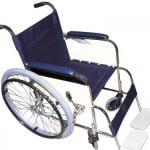 If you have started the process of getting dental insurance quotes for your business, you know that it can be tough to determine the best plan option with all of the moving parts involved. There is price, network, in an and out of network coverage considerations and more!
If you have started the process of getting dental insurance quotes for your business, you know that it can be tough to determine the best plan option with all of the moving parts involved. There is price, network, in an and out of network coverage considerations and more!
One of the important pieces to understand, that many people(including brokers) seem to overlook is comparing the differences of UCR and MAC payments. When looking over your many quotes you will notice that they will say UCR at 90th percentile, or UCR at 80th percentile or MAC, or maybe something totally different. These are important numbers which I will explain below.
First a quick definition:
UCR stands for usual, customary and reasonable – The insurance company will take the average price for a given service in your geographical area and base their reimbursements on these numbers. Let’s say in your area, 80 percent of dentists charge $1,000 for a root canal. $1,000 is the UCR for a root canal in your area.
Maximum Allowable Charge – The maximum allowable charge is based on what the insurance carriers in-network dentists charge for a given service. In-network dentists will typically accept a lower payment for services so for the same root canal as above, the MAC for a root canal may be $650
Why All this Matters?
You have no doubt noticed the certain plans may be cheaper than others. Here is where the UCR and MAC kick in.
Let’s compare the options in a few real world scenarios.
Example 1: UCR at 90th Percentile
Plan covers 50% of the charge on out of network services. Payment is based on 90th percentile of the UCR.
Your dentist charges $1,000 for the root canal and the UCR is $1,000.
Your insurance company pays at the 90th percentile so they will pay 50% of the $900 or $450.
You pay the remaining $550 to your dentist and go on your way.
Example 2: UCR at 80th Percentile
Plan covers 50% of the charge on out of network services. Payment is based on 80th percentile of the UCR.
Your dentist charges $1,000 for the root canal and the UCR is $1,000.
Your insurance company pays at the 80th percentile so they will pay 50% of the $800 or $400.
You pay the remaining $600 to your dentist and go on your way.
Example 3 – MAC – Maximum Allowable Charge
Plan covers 50% of the charge on out of network services. Payment is based on the Maximum Allowable charge.
Your dentist charges $1,000 for the root canal but their network dentists have negotiated a payment of $650.
Your insurance company pays based on the MAC so they will pay 50% of the $650 or $325.
You pay the remaining $675to your dentist and go on your way.
Summary:
When looking at the three options, the potential out of pocket can range from $550 to $675 for a root canal. This may not be a big deal but it is useful information to use if you are trying to upgrade your plan (go for a higher UCR) or downgrade and save some premium dollars(MAC) plan. It is also good to know if you have many employees who will use mostly out of network services compared to in-network so you can tailor the plan to fit your demographics.
Out of network based on MAC – Good (lower premiums, higher out of pocket)
Out of network based on UCR 80th percentile – Better
Out of network based on UCR 90th Percentile – Best (higher premiums, lower out of pocket)
If you need assistance quoting dental insurance for your company or would like me to review your plan, please contact me here.



